DATE |
TOPICS |
READINGS, ASSIGNMENTS, DUE DATES |
| 1 |
Tues.
Jan 14
|
Introduction to Digital Culture
Syllabus, course schedule.
Steven Johnson: Where good ideas come from (TED talk). PLEASE PUT HIS VISIT IN YOUR CALENDARS: 7PM APR. 8
COMMONS BALLROOM
- IDS program (new program at UNI)
- Digital Collective (UNI student digital media organization, earn 1 credit, talk to Bettina Fabos)
- AAF-UNI (UNIstudent Advertising organization)
- explain Blackboard/Content
Digital immigrants vs. digital natives
|
Syllabus
IN CLASS: 3 min stream of consciousness
FORTEPAN Project introduced |
Thurs.
Jan 16 |
The Utopian Internet
The Networked Public Sphere and Web Culture
TED Talk: Yochai Benkler on Open Source Economics
Yochai Benkler, The Wealth of Networks, Ch. 1: Introduction: A Moment of Opportunity and Challenge
|
READINGS/VIEWINGS (due today)
- Mark Prensky, "Digital Natives, Digital Immigrants," Digitial Divide: Arguments for and Against Facebook, Google, Texting, and the Age of Social Networking (2011), edited by Mark Bauerlein, pp. 3-11. (SEE PDF IN BLACKBOARD--this is what we talked about on Tuesday)
- Clive Thompson:How Successful Networks Nurture Good Ideas: Wired/Crazy Good! October 2013 issue
- Chris Anderson, TED TALK (below). How the Web Powers Global Innovation
3/4-1 page write up (uploaded to Blackboard before class) SINGLE SPACE PLEASE, TIMES NEW ROMAN
- To what extent are you a digital native? Do you know some digital immigrants? How are they adapting to digital culture?
- Summarize Clive Thompson's main points (please feel free to refer to the transcript under his TED Talk) and refer to at least one example that supports each of his main points.
- Summarize Chris Anderson's main points (referring to the transcript is a good idea), and note his accompanying examples.
REMINDER: THIS SHORT PAPER (approximately 3 paragraphs--one paragraph per question--must be loaded onto Blackboard as a digital file--no rtf or wordperfect files please!)
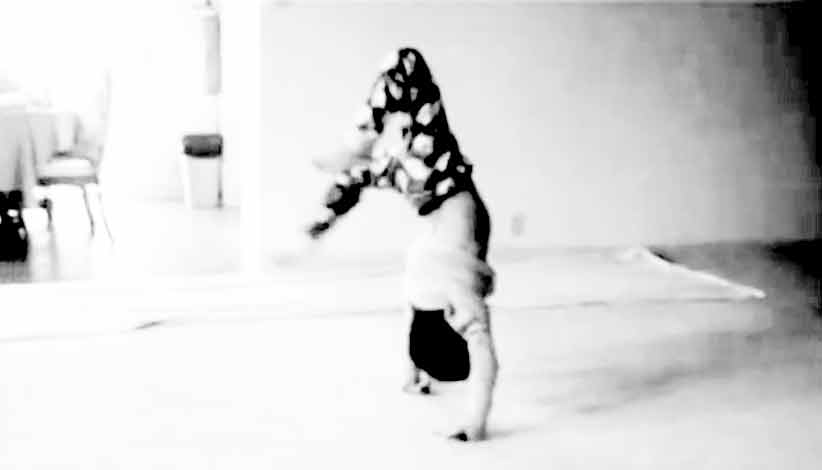
|
| 2 |
Tuesday,
Jan 21
|
The Probematic Internet |
READINGS/VIEWINGS (due today)
3/4-1 page write up (uploaded to Blackboard before class)
- Articulate Cass Sunstein's main points: Does he see the Internet as being a wonderful development for democracy? No? Why not?
- Summarize Andrew Keen's argument against the internet idealists and his supporting examples? Do you agree or disagree?
- Summarize Mark Goodman's TED Talk on technology and how criminals are using it. (refer to transcript too)...How are criminals using technology? OR.....
- Summarize Rebecca MacKinnon's argument about why the web is not a utopia, and note her supporting examples that explain how corporate and government control is destroying the citizen-centric Internet.
REMINDER: THIS PAPER must be loaded onto Blackboard as a digital file. Please no rtf fonts or word perfect...If you don't have word write your piece in Google Docs and then simply save as a Word File.
|
Thursday,
Jan 23
|
RIP: A REMIX MANIFESTO
Everything is a Remix
Part 1, etc.
|
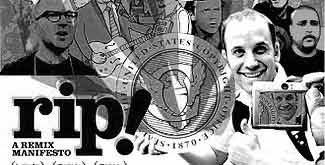
Rip: A REMIX Manifesto : to be viewed in class |
| 3 |
| Tuesday, Jan 28 |
Steven Colbert and Lawrence Lessig
Walk to Digital Media Hub
|
READINGS/VIEWINGS (due today)
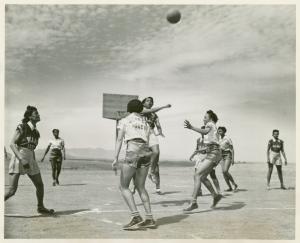
3/4-1 page write up (due in class, printed, as well as uploaded to Blackboard)
- Summarize Lessig's three stories that all talk about read-only vs. re-write culture.
- How do these stories fit together and support his main argument? (note his many examples!).
REMIX PROJECT INTRODUCED
|
| Thursday, Jan 30 |
Video work in Class |
To prepare for this class:
FIRST: LOG IN TO LYNDA (lynda.uni.edu) and sign in with your UNI Cat ID
SECOND: go to Premiere Pro CC Essential Training.
THIRD: download the Exercise Files.
Please bring these files on a USB drive to class.
HOMEWORK after we work in class: Lynda.com tutorials will be an enormous help to you. I recommend you go to the Digital Media Hub, check out a laptop, and work directly with the Adobe Premiere Pro software. To access Lynda,LYNDA: LOG INTO LYNDA and then CLICK ON THIS LINK to Adobe Premiere Pro CC Essentail Training.
Go through an hour's worth of this tutorial at the level you feel most comfortable.
Lynda.com is an awesome resource: make sure you know about it and know you can access it at any time. Also know that 35 computers are waiting for you to check out at the Digital Media Hub, all equipped with Adobe Premiere Pro. |
| 4 |
| Tuesday, Feb 4 |
Copyright and Music Sampling
Code of Best Practices in Fair Use
If I had a Hammer |
READINGS/VIEWINGS (due today)
3/4-1 page write up (due in class, printed, as well as uploaded to Blackboard)
1. In what ways are today's copyright laws, as they are applied to music sampling, ridiculous? Offer some specific examples from the Kembrew Mcleod introduction and "Copyright Criminals" chapter.
2. Referring to "A Fairy Use," what the heck is fair use? And what the heck is public domain?
3. Why is "A Fairy Use" video an example of a Fair Use of copyright material?
|
Thursday,
Feb 6 |
What is transformative content?
|
Video Editing: Working with audio, titles, and blacK, ETC.
|
| 5 |
Tuesday,
Feb 11
|
|
Video Editing: Working with audio, titles, and black ETC.
|
Thursday,
Feb 13 |
Watch projects
|
REMIX PROJECT DUE
3/4-1 page write up (due in class, printed, as well as uploaded to Blackboard)
Post your remix to our YouTube channel.
1.
What is the purpose of your remix?
2.
How do you justify your remix with regard to Fair Use?
3.
How are you specifically transforming your media content in a way that makes us understand it in a completely different way?
HOMEWORK: Please refer to the YELLOW section of the WIKI Assignment.
GO TO ROD LIBRARY AND CHECK OUT A NON-FICTION BOOK CONTAINING INFORMATION ABOUT ANYTHING YOU MAY BE PARTICULARLY INTERESTED OR EVEN CASUALLY INTERESTED IN. THIS BOOK WILL PROVIDE CONTENT FOR A WIKIPEDIA ENTRY. YOU MUST BRING THIS TO CLASS ON TUESDAY, OCT. 1.
|
| 6 |
| Tuesday, Feb 18 |
Wikipedia |
WIKIPEDIA ASSIGNMENT INTRODUCED
WE WILL BEGIN (AND MOSTLY FINISH) THIS IN CLASS

|
Thursday, Feb 20 |
Wikiality/Steven Colbert
Too Big To Know (On the Media. 6:04)
Wikis
Wikipedia Edit Wars
WIKINOTES
|
READINGS (due today)
3/4-1 page write up (due in class, printed, as well as uploaded to Blackboard)
First you should know that the New Yorker has some of the most balanced, well-argued, intelligent articles of any magazine in the country...I'm just telling you this b/c you simply should know about the New Yorker, and also Harper's, the Atlantic Monthly, and the New York Times Sunday Magazine. Consider picking up any of these publications from time to time and reading them. Doing this will seriously make you smarter and change your world--they are the best possible way to be informed about the complicated issues and trends of our day. That being said, summarize Stacy Schiff's
argument about Wikipedia and expertise (published in the New Yorker in 2006) list her examples, and comment on her conclusion. |
| 7 |
Tuesday,
Feb 25
|
Go to YouTube: Dashboard/Video Manager/Copyright Notices.
NOTICE
YouTube: How Copyright Claims May Affect Your Video
Digital images and the public web:
Getty, Flickr, Creative Commons, LOC, New York Digital Library, UNI/Rod, FORTEPAN
How is Rod Library both a physical space and a digital space?
Libraries and the commons
|
READINGS/VIEWINGS (due today)
- Aaron Swartz's Legacy
- David Bollier: The Commons, Short and Sweet
- War of the Web Kickstarter trailer (film will be released in 2014)
3/4-1 page write up (due in class)
- Why did Aaron Swartz download all those JSTOR articles and what does his stance have to do with The Commons (as described by David Bollier)?
- Why was Swartz pursued by the FBI and the Office of the District Attorney in Massachusetts ?
- 3. What war does "War of the Web" refer to?
|
Thursday,
Feb 27 |
FOLDERS DISTRIBUTED
Best practices discussed
Why is Fortepan important? |
|
| 8 |
Tuesday,
Mar 4 |
Lawrence Lessig remembers Aaron Schwartz
|
Go over Aaron Swartz/Creative Commons
PREP for Midterm.
|
Thursday,
Mar 6 |
Coolest Apps |
MIDTERM:
Study Guide 
|
| 9 |
Tuesday
Mar 11 |
NSA and Government Surveillance
Edward Snowden part 1 (12:35)
Edward Snowden, part 2 (7:07)
NSA Spying infographic
|
NSA, Privacy, Edward Snowden, Government Data Mining
NO READING DUE TODAY
ATTENDANCE REQUIRED
|
| Thurssday, Mar 13 |
Julia Anguin: Dragnet Nation (start at 1:10-21:00)
Google History
Bill Moyers' interview with Julia Anguin
CLEARING Cookies in Chrome: Preferences/Show Advanced settings/Privacy Settings/Content Settings/Cookies
DuckDuckGo
Ghostery
LA Times Review of Dragnet Nation |
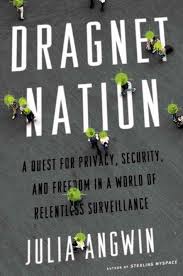
Privacy, Data Mining, Googlization of Everything
NO READING DUE TODAY
Security Risks from the Smart Home
|
| 10 SPRING BREAK |
| 11 |
Tuesday,
Mar 25 |
|
READING DUE TODAY
THERE WILL BE NO CLASS TODAY, but you are expected to have read these articles.
Also, please do some ADDITIONAL RESEARCH on "wearable technology" and bring these articles to class on Thursday.
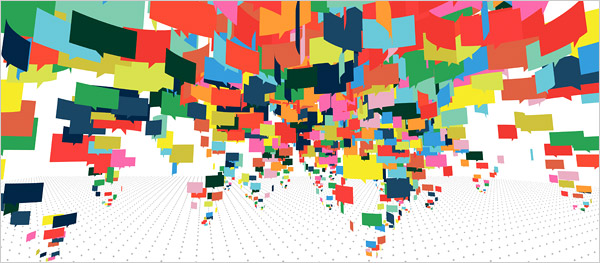
|
Thursday,
Mar 27 |
Cool Apps
Ryan Courtney, "War On Hacking" After Dinner Speech. |
READING DUE TODAY
|
| 12 |
Tuesday, Apr 1 |
Ryan Courtney & Anthony Peavy: "REmix Culture"
Google sketch/SNL
The Ubiquity of CODE
Douglas Rushkoff: Programmed or Be Programmed
Oculus Rift
|
READING DUE TODAY
BLOG PROJECT ASSIGNED |
Thursday,
Apr 3 |
The Ubiquity of CODE
Code Academy |
No reading.
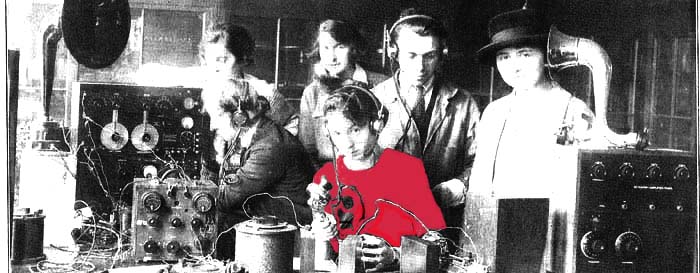
|
| 13 |
Tuesday,
Apr 8 |
Teen Online/17 minute film |
NO CLASS
REQUIRED LECTURE: STEVEN JOHNSON, 7 PM, COMMONS BALLROOM
|
Thursday,
Apr 10 |
|
FORTEPAN
- Blake Schlawin
- Sophia Spier
- Emma George
- Sandra Flikkema
- Chelsea Ecklund
- Heather Kelly
- Kat Bartlett
|
| 14 |
Tuesday,
Apr 15 |
|
Facebook, Kik, and the future of social media
PLEASE READ FOR TODAY:
|
Thursday,
Apr 17 |
|
Social issues with Technology
See this:
PLEASE READ FOR TODAY:
|
| 15 |
Tuesday,
Apr 22 |
Sweetie: fight against sexual predators
|
Health and Technology
|
Thursday,
Apr 24
|
|
FORTEPAN
- Carlie Frost
- Ashley Pettit
- Sammie Mallow
- Lisa Richtsmeier
- Andrew McIlhenny
- Samantha Gabel
- Emily Boehm
- Olivia Hottle
|
| 16 |
| Tuesday, Apr 29 |
|
FORTEPAN
- Cory Wagner
- Gaelen Morgan
- Heather Kelly
- Charlee Johnson
- Carter Doering
- Lauren Lewey
- Nathan Buss
- Evan Stevenson
|
Thursday
May 1
|
open web vs. walled garden |
Final exam
STUDYGUIDE |
| EXAM WEEK: May 5-9 |
| Thursday, May 8 |
|
Blog DUE.
3:00-4:50 p.m.
|









